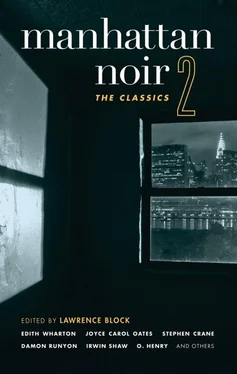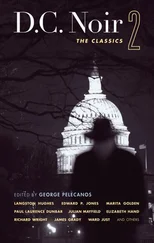Robinson would have been the only possible means of divining the location of the securities in the office and the “inspector” must have worked with him carefully to set up the plan. How they must have laughed! and then their faces lapsing into purpose as they had gathered more tightly to roll up the net.
The “inspector’s” motives would always be shrouded — he can accept this, there are things in life which he will never know — but Robinson’s would not. He would have needed the securities for himself, control of the business, immunity from detection. An embezzlement of twenty-five long years’ duration would have shortly been discovered anyway and everything would have collapsed. The annual audit, he thinks excitedly, was just about due under the new accounts for the first time.
Robinson would have known that he had very little time to act. This was part of the motive but will also make the solution easier. As it was, Robinson stood to benefit in two ways. He would hide the embezzlement forever and he would assume full control of the firm.
Until now, then, the plan in its malevolence and cunning had worked well. If it had not been for this last-minute deduction on which Robinson and the “inspector” could not have counted it would have succeeded. But now, given only a little more time he could clear himself and bring it down around them.
The police. He will call the police and tell them everything patiently, carefully. Already they have traced him to this miserable, dangerous hotel. Patrolmen have parked cars outside. They are prowling through the gray corridors pounding at doors, ignoring the drug traffic in their eagerness to get at him. It will not be long until they trace his room number through the little clerk downstairs and find him.
But the same drives, he hopes, that enabled them to trace his whereabouts so skillfully will underline their willingness to listen.
Surely the authorities want this crime solved as much as he does.
And once the pieces begin to fall into place — the “inspector” who is not an inspector, the strange behavior of Robinson, the circumstances of the firm’s accounting — the end will come quickly. The “inspector” at least must, as part of the plan, remain in sight, continuing his normal activities, being accessible. The police will find him quickly and quickly the confirming story will emerge.
For many years Robinson himself has been under great strain; these last few weeks must have been a nightmare for him as well — a dread tight-roping between necessity to continue and the urge to confess.
Robinson will be found. He will tell them everything quickly.
So. The police. He will call them now and set in motion that series of events which will free him. The authorities will not be able to bring back his wife and he realizes that to a certain extent that does make the crime his because he allowed their marriage to die. But this is something for which he will have to atone carefully, in a private way, in whatever years remain.
For an instant he thinks of phoning his doctor instead and having him make the call to the police to negotiate a meeting, but he realizes that it is too late for this kind of caution and so he picks up the phone with determination, choking slightly. Fetid air pours in from the walls. Decrepit. The hotel is impossible. You cannot blame tenants for the quality of lives they must lead living here.
But he, he at least will live in better circumstances soon. In possession of himself for the first time in many weeks he leans forward intensely.
But it occurs to him in the midst of dialing that he has, so far, murdered his wife, his doctor, his business partner and the police inspector sent out for routine questioning on these murders and that he is very tired of hiding in a hotel room, becoming bored with the reduction he has made of his life. Figures. He needs more figures in his speculations, that is all. He cannot manipulate just the four of them forever.
“Pardon me,” he says to the desk clerk who has come politely on the line after the long hold. “Pardon me, but would you bring me another cup of coffee and maybe a bottle of scotch up here?” He has a relationship with the desk clerk. It is a familiar errand.
“And I’ll have something extra for you,” he adds cunningly to speed the little clerk on his errand and puts down the phone.
“Yes, sir, here it is,” the clerk says, entering a few moments later... and then falls dead with a .32 caliber bullet in his heart, falls dead on the sheets beside him and as he does so the doctor, the inspector, his wife and Robinson all turn to congratulate the clerk with relief on their faces and to welcome at last a new member into the club.
Crowded lives
Clark Howard
Sixth Avenue
(Originally published in 1989)
George Simms stood across the street on Sixth Avenue and looked at the old Algiers Hotel. It did not appear markedly different than he remembered it from years earlier. There were a couple of vagrants loitering outside and a few scruffy kids playing where previously a uniformed doorman would never have allowed, but the vagrants and the kids were there because the neighborhood had gone so far downhill. The hotel itself, twelve stories tall, standing formidably behind its marqueed entrance, was outwardly unchanged, as if its dignity, its style, might still be intact. George Simms knew, however, that inside would be a different story entirely.
When there was a lull in traffic, Simms crossed the street and tried five of the eight entry doors before he found one unlocked. Walking quietly across a marble floor, he stopped at the edge of the foyer and looked at the lobby. The Italian-marble columns were still there, and some leaded windows high up in the wall that faced an inner courtyard, but that was all that remained unscathed. Most of the mahogany wainscoting and pilasters was warped, scratched, scarred, or broken off. The velvet tapestries were dusty and torn. The carpeting was worn, ripped, curling up at the corners. A lot of the original lobby furniture was still there, overstuffed chairs and divans on which stylishly dressed women had once taken afternoon tea. The women sitting on them now, George Simms observed, wore sweatshirts and Levis, and drank their coffee out of cardboard cups. Their children, perhaps two dozen of them — like their mothers, of various colors — were playing on the worn carpet, hiding behind the torn tapestries, or scribbling on the mahogany with stubs of crayon. Off in the corners sat a few elderly persons who watched them silently.
Across the foyer, a stout, uniformed woman sat at an incongruous green-metal desk under a sign that read: ALL VISITORS MUST SIGN IN AND OUT. She had been watching Simms since he had walked in and finally said, “Can I help you?” Simms went over to her. “I’m supposed to go to work for Charlie Hosey.”
“You from the halfway house?”
“Yes.”
“Okay, you got to see Max Wallace first. He’s head of security on the premises. See the grand ballroom over there — those big doors that are chained shut? Go down the hall next to them — you’ll see his office.”
Simms threaded his way through the playing children, past the women whose conversation ceased as he went by, past the big ballroom doors which did have a length of chain connected to their brass handles by a padlock, and down a hall to a door that had assistant manager lettered into its mahogany surface and a plastic sign reading Security thumbtacked above it.
A black man dressed in starched, creased khaki, Max Wallace was thick but not fat, built like a fire hydrant, with eyes that riveted wherever they focused. As soon as Simms entered, they riveted on him. “Let’s see your assignment paper,” he said without preliminary.
Читать дальше












